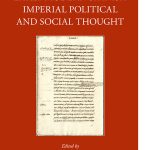In March and April, two new important sources of the Digital Collection of Sources of the School of Salamanca were published:
The Lexicon Iuris Civilis, written by Nebrija in 1506, has been edited according to the printed version of Frellaeus (Lyon, 1537). Part of a big encyclopaedical project undertook by Nebrija to offer the learned community of his time systematic vocabularies of disciplines such as medicine, natural history, theology and law, Nebrija’s Lexicon Iuris Civilis integrated 600 lemmata. Continue reading “The School of Salamanca: New Digital Editions of Nebrija’s “Lexicon Iuris Civilis” and Diego de Avendaño’s “Thesaurus Indicus”, vol. 3, now online”
